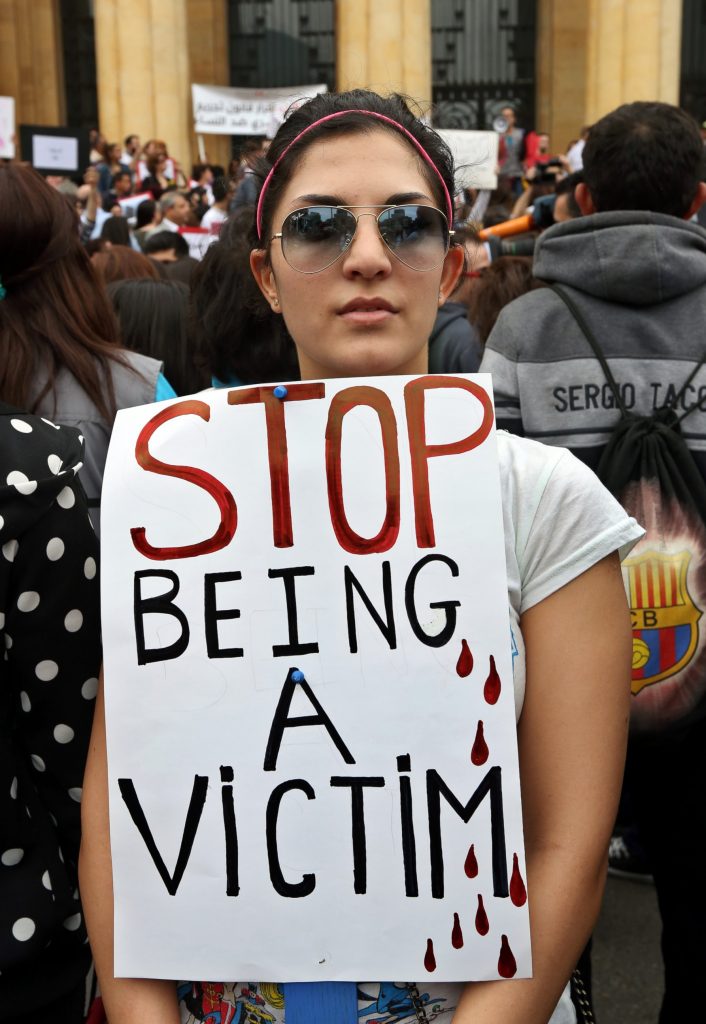SPOUSAL abuse is not about to abate anytime soon. On the contrary, it is escalating. As a point of reference, the recent death of Ronke Shonde, a Lagos housewife, has captured the public imagination. The deceased was allegedly killed by her husband, Lekan Shonde, after a domestic scuffle over alleged infidelity and finances turned awry. The incident should not be viewed as an isolated case, but it should prompt an all-inclusive reappraisal of spousal abuse and domestic violence in the country.
Spousal abuse takes numerous forms, including physical violence, mental and sexual assault. Prolonged physical abuse leads to injuries and deformities and, ultimately, could result in death. The case of Akolade Arowolo, who stabbed his wife, Titilola, 76 times in 2011, is still fresh in the memory. Although Arowolo denied the murder charge, arguing that his wife killed herself, he was sentenced to death by hanging in 2014 after three years of trial aided by forensic investigation. Last weekend, Mrs. Roseline Sougie, was allegedly killed by Jafaru, her husband of 26 years, who reportedly slit her throat with a knife in their Lagos home.
But what would make a man to assault or kill his wife (and vice versa)? There is plenty of blame to share in spousal abuse and experts attribute the trend to the growing pressure on family finances and culture, which ties women down in abusive relationships. Relationship specialists state that exposure to domestic violence as a child fuels the habit in adulthood. The affected children attain maturity believing that there is nothing wrong in maltreating their spouses.
A study in the United States, where the menace is pervasive, says that victims of spousal violence find it difficult to quit because their husbands control the money supply to their victims, making their spouses to stay or return to such abusive marriages. Spousal abuse cuts across all classes, those in the limelight inclusive. International celebrities, who have been linked to domestic violence include boxing stars, Mike Tyson and Floyd Mayweather (Jnr.). American pop star, Chris Brown, was interrogated for beating up Rihanna; actor Sean Penn was arrested and sentenced to 33 days in prison for the abuse of Madonna, his then wife.
Professionals say that many women were aware before marriage that their partners had abusive tendencies. This is shocking. The experts say the sign of an abusive relationship includes excessive monitoring of a spouse, insistence on the wife not working, accusation of infidelity, threats to expose secrets, stopping the victim from seeing friends and family, extreme jealousy, forced sex and dual personality – charming in public, but cruel in private.
This places the onus on women to tread carefully before leaping into marriage because the impact of domestic abuse could be devastating. Elizabeth Broderick of Australia’s Human Rights Commission, points out that domestic violence has reached an “epidemic proportion” there, stating that two women die each week at the hands of their partners and family members. In substantiation, a note by the United Nations estimated that of all women who were victims of homicide globally in 2012, almost half were killed by intimate partners or family members.
This is food for thought for intending couples. And, the solutions proffered by Broderick, which our authorities can adopt, can help. She argues that victims should be given a voice, and “men should champion women’s rights.” These areas are critical in spousal violence. In the US, a study reveals that one in four victims of spousal violence are unlikely to speak out. In our clime, where police habitually treat reports of domestic abuse as a “family affair,” it is time to pay attention to hints suggestive of domestic abuse.
Our laws against violence must be implemented to stem the scourge, as it is being done in the West. In a recent example in England, a magistrate convicted Danny Simpson, a Leicester City FC player, for an assault on his girlfriend and sentenced him to unpaid work. But when his counsel re-applied to the court for the modification of the sentence, arguing for a fine instead, because of press intrusion at his unpaid work post, the judge refused, saying that the offender was a millionaire who would not feel the impact of a fine. Therefore, she re-sentenced him to a 21-day curfew, which meant that Simpson missed out as Leicester paraded their Premier League trophy across the city.
However, it will be subjective to think that only women suffer domestic harm. Men can also be at the receiving end, just like Oyelowo Oyediran, whose wife, Yewande, is standing trial in Ibadan, Oyo State, for allegedly stabbing him to death in February; or Wasila Tasi’u (then 14), who was accused of murdering her husband, Umar Sani, by feeding him with rat poison in 2014 in Kano State. There was also the case of Temitope Adebamiro, who was put on trial for first degree murder in Delaware, US, last year for allegedly stabbing her husband, Adeyinka Adebamiro, to death after an argument became physical.
Nobody wants to be maimed or killed by the person they profess to love. People should learn how to take full responsibility for their personal safety, regardless of what religion or culture dictates. To stop this nuisance from becoming endemic, our laws need to be broadened, too. Thus, the Violence Against Persons Prohibition (2015) law, which applies only to the Federal Capital Territory, ought to be made a national law. And, it should be fully implemented. The role of police is also critical: they have to change their mindset when


One Response
I agree with Using the law deal to spousal abuse. This act is becoming unbearable also scaring.